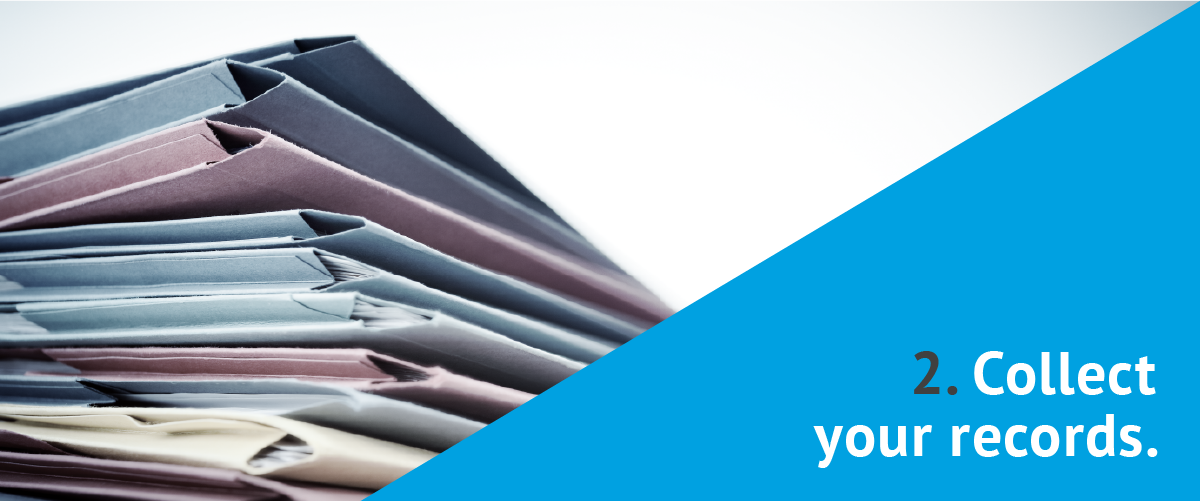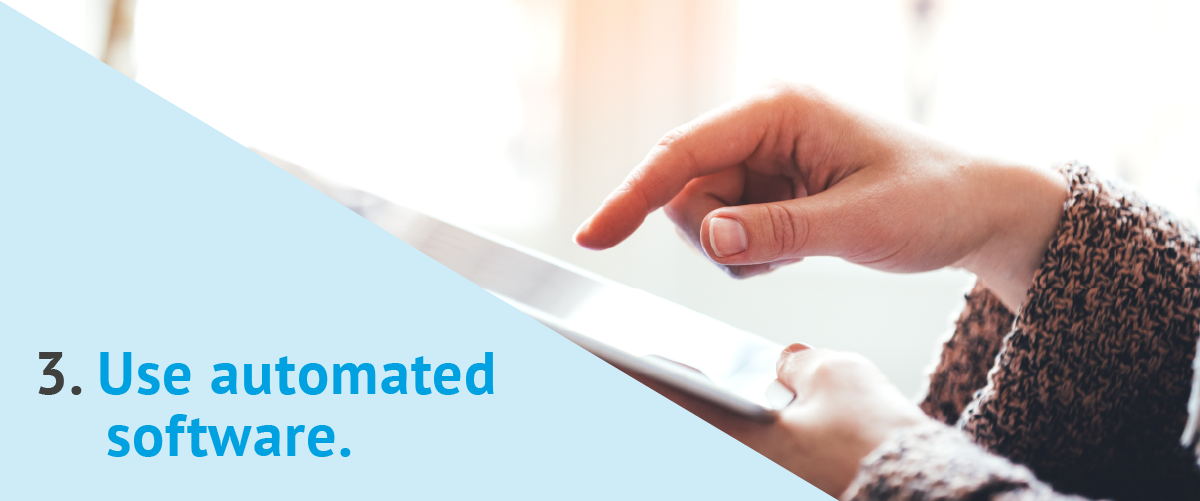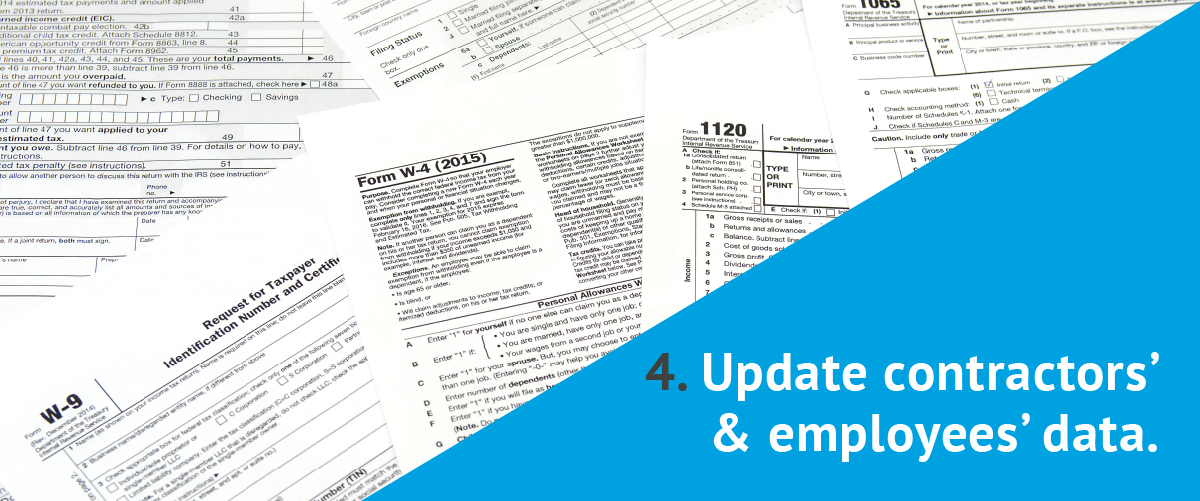Get your small business ready for tax season
The hustle and bustle of the holiday season give way to the start of the tax season. December 31st marks the end of the financial year and the time to either prepare to present your bookkeeping records to your accountant or start the tax process yourself. Getting ready to file taxes can be one of the most burdensome tasks for small business owners. A survey by The National Small Business Association (NSBA) found that one-third of small business owners spend more than 80 hours (or two weeks of full-time work) on federal taxes. Tax season doesn’t necessarily have to be a stressful time for small business owners. The earlier you start getting ready and organized for tax season, the less you’ll have to worry about when you have to file.
Preparing your small business for tax season may not be at the top of the list of the most exciting things to do, but filing accurate tax returns is non-negotiable in business. Your responsibility is to account for the relevant financial transactions in your business.
To start getting your tax ‘house’ in order, you’ll need to first determine the type of tax return you’ll be required to file relative to the legal structure of your business. For example, you’ll report your business income on your personal tax return if you’re categorized as self-employed. The filing process is different if your small business is incorporated.
Here are some tips to get your small business ready for the tax season to reduce stress and headaches, irrespective of the legal structure of your business:

- **Be aware of all tax deadlines.**As well as the most publicized tax return due dates, your small business may also be subject to other deadlines throughout the year. Awareness of the relevant dates for your business structure will help you to keep the relevant records and budget the money you owe. You’ll need to be aware of all the federal and state tax deadlines. The IRS calendar for business and the self-employed provides you with the details of the actions you need to take each month in relation to your federal taxes. If you need to find out about your state’s tax deadlines, Efile.com has a list of links to each state’s tax website.

- Collect your records.
Keeping accurate records of your small business financial operations will be invaluable in helping you arrange the required statements to prepare your tax return. Your records need to confirm the expenses, income and credits declared on your tax return. You must be capable of providing evidence to prove any entries, deductions, and statements on your tax return. Your records must also be available for inspection if a request is made by the IRS.Have a look at the IRS website for a recommended list of documentation that you should retain for your small business. As well as keeping your previously-filed tax returns, you should also have the following records:- Bank records
- Credit card receipts
- Register tapes
- Cancelled checks
- Invoices
- Business receipts for subscription services and memberships
- Petty cash slips
- Credit card receipts
- Business credit card accounts
- Profession services fees

- **Use automated software.
**Meticulous record-keeping is a must to get your small business ready for tax season. The method you use to collect and track your business transactions will determine how difficult it will be to prepare for tax season. Using manual systems or spreadsheets can cause confusion when it’s time to reconcile your accounts. There are different types of automated systems you should use to get your small business in the best position for the tax season.Automating your inventory system helps you to document all inventory transactions over the year. This system also provides the necessary data to help you better forecast your inventory needs. If your small business has an inadequate inventory system, you’ll end up storing extra stock. Carrying too much excess stock places an additional financial burden on your small business since you’ll need to pay for storage and securing your goods. Poor inventory management can also result in a higher tax bill because you must account for the inventory you hold when filing your tax return. Workforce management with payroll integration is another business aspect that should be automated for smoother small business record-keeping. Your employee wages are a staple of tax filing. Without automation, you’re likely to waste a significant amount of time calculating and reconciling time cards. The IRS has advised that 33% of employers make payroll mistakes, which costs billions every year. It’s vital to have a reliable way to record and report on your payroll when getting ready for tax season. The IRS will impose a fine on your business for incorrect employee taxes. Additionally, your employees can also bring a lawsuit against your small business if you’ve made mistakes in relation to their wages and they’ve received incorrect pay.Using manual methods to record information required for your tax return is a risky strategy. The penalties for incorrect information can have a serious and negative impact on your business. Whatever automated software you use, make sure that your business systems are integrated. System integration is an extra line of defense for your business when getting ready for tax season. Your systems should be integrated to provide an end-to-end business solution for accurate reporting and for a more stress-free tax preparation experience.

- Update contractors’ and employees’ data.
Have you worked with independent contractors or freelancers who:- Are not employees?
- Are not incorporated?
- You’ve paid $600 and over?

- Start reconciling your bank accounts.
Review your bank account statements against your business records. Go through and meticulously compare every transaction from your bank account to make sure it matches what’s recorded in your business. You’ll need consistent records across all of your accounts. If you spot errors, make sure you deal with them straight away. Reconciling your bank account is still important even when you’re using a bookkeeper or an accountant. Providing your tax professional with unreconciled accounts will make arranging your accounts more difficult and costly. Expect to be charged more if you fail to reconcile your bank accounts in advance.

- Take advantage of end of year deductions.
Deductions can reduce the amount of tax you pay by taking away from your total taxable income. You can claim deductions for things like property taxes and internet services if you operate your business at home. Here are some other ways you could reduce your tax bill using deductible expenses:- Charitable contributions can be used to lessen your tax burden. Your cash, property or equipment donations can be tax deductible depending on the structure of your small business.
- Rewarding your staff with bonuses before the end of the year could result in a lower tax bill for your small business.
- Find out whether your holiday party is eligible to provide your business with tax-deductible benefits. Your business celebrations could be 100% tax-deductible if it meets certain criteria, such as promoting employee goodwill.
- Capital cost allowance gives you the ability to account for the depreciation of business-related equipment like vehicles, computers and machinery.

- Prepare your payment plan.
It’s likely that you’ll need to make a payment for your small business tax. There are different payment options available to you, which include:- Full payment at one time
- Paying in 120 days or less (short-term payment plan)
- Paying in more than 120 days (long-term payment plan)

- Face difficulties head-on.
When you start getting your small business ready for tax season, you may discover that critical information and documentation is missing. Although it can be tempting to bury your head in the sand, it’s vital that you deal with any difficulties immediately. If you’re working with a tax professional, it’s highly likely that they have come across your situation before and will be able to advise you on what steps to take.If you need more time to get your records and documents organized and are feeling overwhelmed by the possibility of filing on time, you should request an extension from the IRS. If the extra time will take the pressure off and will give you the chance to collect everything you need, then take advantage of the extension lifeline. It’s better to admit that you’re struggling and ask for an extension than risk incurring penalties and interest because of late submission and payment. The following forms can be used to request an extension for filing your taxes:
Paying taxes is one thing that’s unavoidable in business. However, you can steer clear of the uncertainty and pressure associated with filing tax returns by planning ahead for the tax season. The habits that you form all year around will reduce the strain when tax season rolls around. It’s best to be clear on what your tax obligations are, so ask your tax professional (if you’re using one) about things you’re unclear about. You should also make use of the IRS and your state website for updates on tax information. Most importantly, use trusted automated systems to track, record and report on the information you need. Tax season doesn’t need to be taxing if you have a plan to get your small business ready to file an accurate return with the relevant deductibles, preferably before the tax deadline.
About Deputy
Increasingly, organizations are moving away from manual entry of data and manually manipulating spreadsheets towards a more efficient cloud-based software approach. During tax season and all year long, time management solutions like Deputy can help you gain control over your schedule to increase productivity while providing your clients with a more engaging experience. To learn more, schedule a customized demo below to see it in action.

